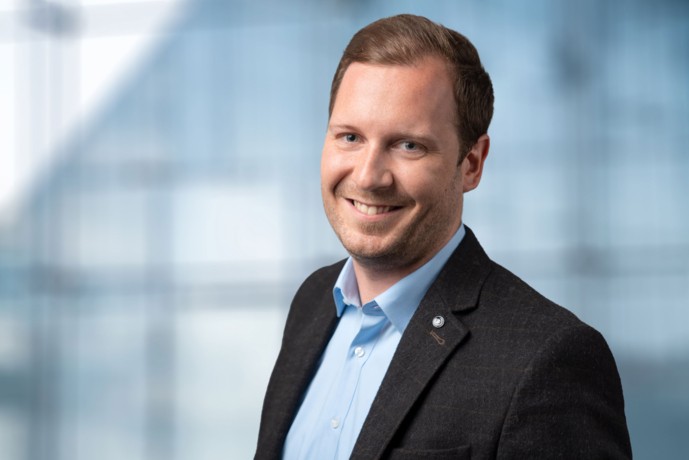Doing the right thing today for tomorrow
17.06.2021
With eccos22®, FACC introduces a quality label based on international standards for the verification of sustainable management and the assessment of the company's innovation and future viability. ECCOStandards & more KG met Patrick Doppler, Manager Export Control and CSR at FACC, for an interview.
Mr. Doppler, what was the impetus or what were the goals for the eccos22® Management Assessment in your company?
The impetus for this actually came from several reasons. On the one hand, we at FACC have already done a lot in terms of CSR in recent years without paying much attention to this term. The entire corporate DNA of FACC has always been characterised by sustainability, as our products, the plastic parts, contribute significantly to lightweight construction in the aviation industry and thus to a reduction of CO2. In addition, there are initiatives that we have been implementing for years, but - like many other companies - have never really boasted about. For example, heat recovery, photovoltaics, the switch to LEDs or geothermal energy have long been part of everyday life at FACC. And we are not even talking about all the measures we implement for our employees as part of our social responsibility. On the other hand, everyone will have noticed by now how important the topic of sustainability has become. It is no coincidence that many companies are now launching "green campaigns". The pressure from legislators (national and international) as well as from customers and society to act here is increasing immensely! In order to present ourselves professionally in this important field and to be able to spread our message to the outside world in the best possible way, we have sought professional help. This is where we landed with the ladies and gentlemen of eccos22®.

How was the assessment implemented and what were the challenges and lessons learned?
The assessment lasted three days at FACC. During these three days, the assessors and the FACC CSR team were divided into two groups to interview more than 70 employees on the topic of CSR. The employees came from all departments and levels (from production staff to the board of directors). Planning such a large assessment was of course a challenge! However, there was a great deal of willingness among the staff, which made it easier to find a date. The results of the assessment were very interesting for us. It turned out that many things are not yet sufficiently communicated throughout the company. Many employees do not even know what we are already doing in the area of CSR. We have to identify and counteract this loss of information.
What did you personally and your team take away from it?
For us, this assessment was an exciting experience away from the audits that we have to conduct as standard. It was a very relaxed and yet professional atmosphere that prevailed during the discussions between the employees and the assessors. The result was an insightful demonstration of how far we are in the area of CSR and where there is still room for improvement.
How do you think the approach of the assessment will affect the management and your core business (your goals)?
The first effects were immediately noticeable! The board of directors passed a unanimous resolution to install the CSR department as a specialist unit under the leadership of a CSR manager. Further projects are and have been evaluated and implemented by this department in the meantime.
What are the three most important advantages that you as a company were able to generate from the assessment?
I think, reduced to three points, these would be:
- The establishment of the CSR department, which is simply better able to collect and manage such a cross-sectional issue in the company.
- Creating awareness among the staff about CSR through the assessment.
- Having a goal-setting process in place. Because, regardless of whether you have already done a lot or very little in the area of CSR, at some point a "fog of stagnation" creeps in and you can no longer find your way as quickly and easily as before. This creeping fog was taken away from us by the assessment and we can focus again!
Thank you very much for the interview!











